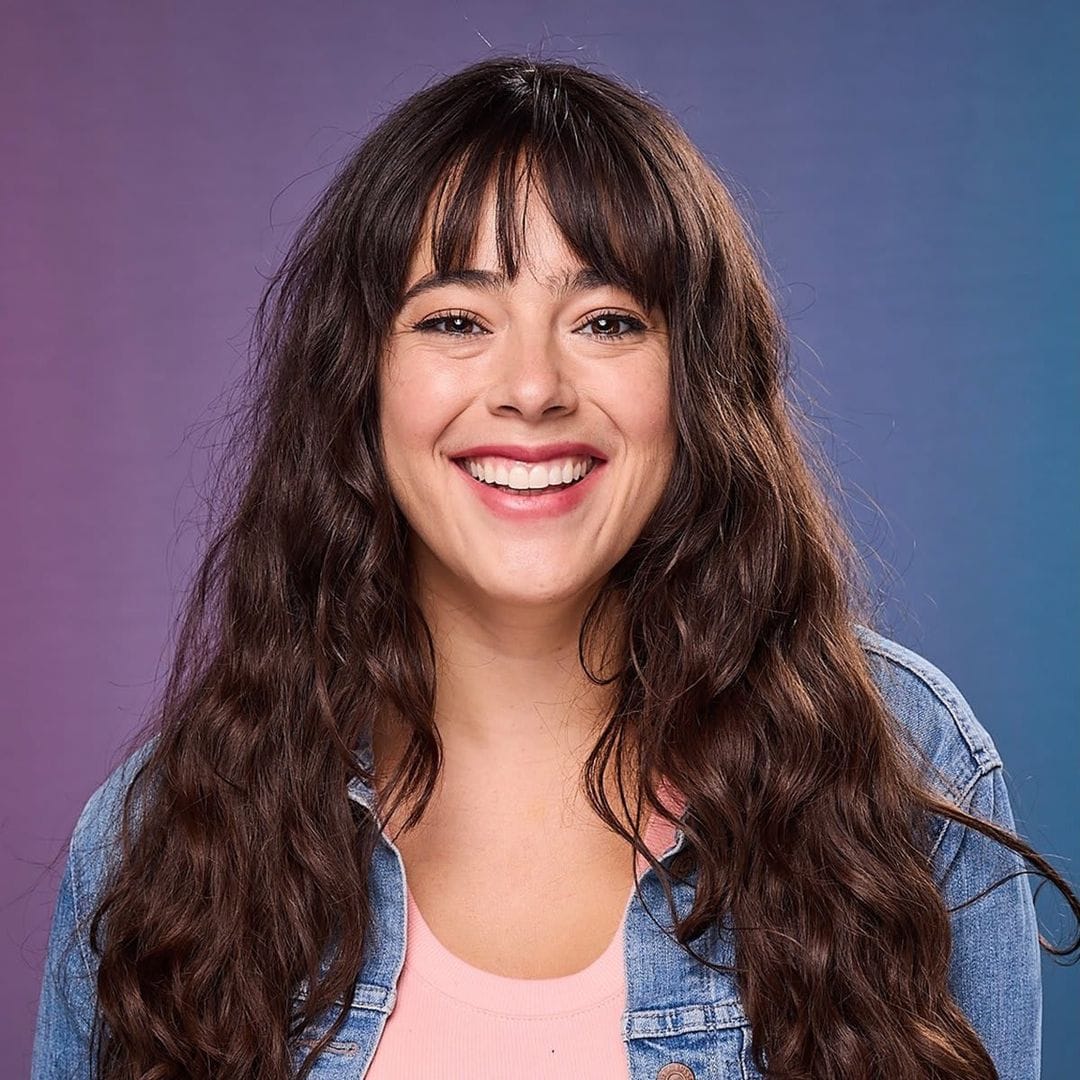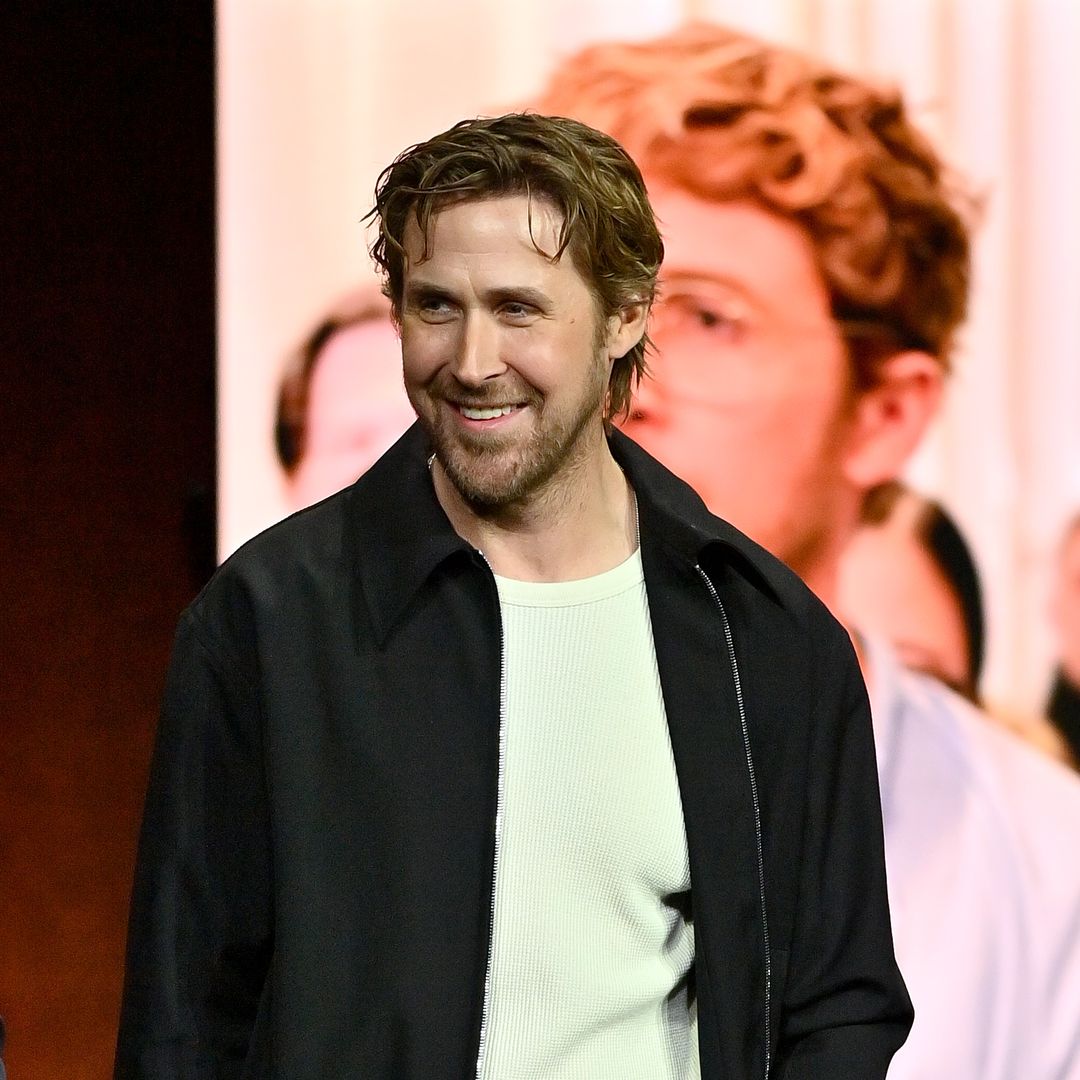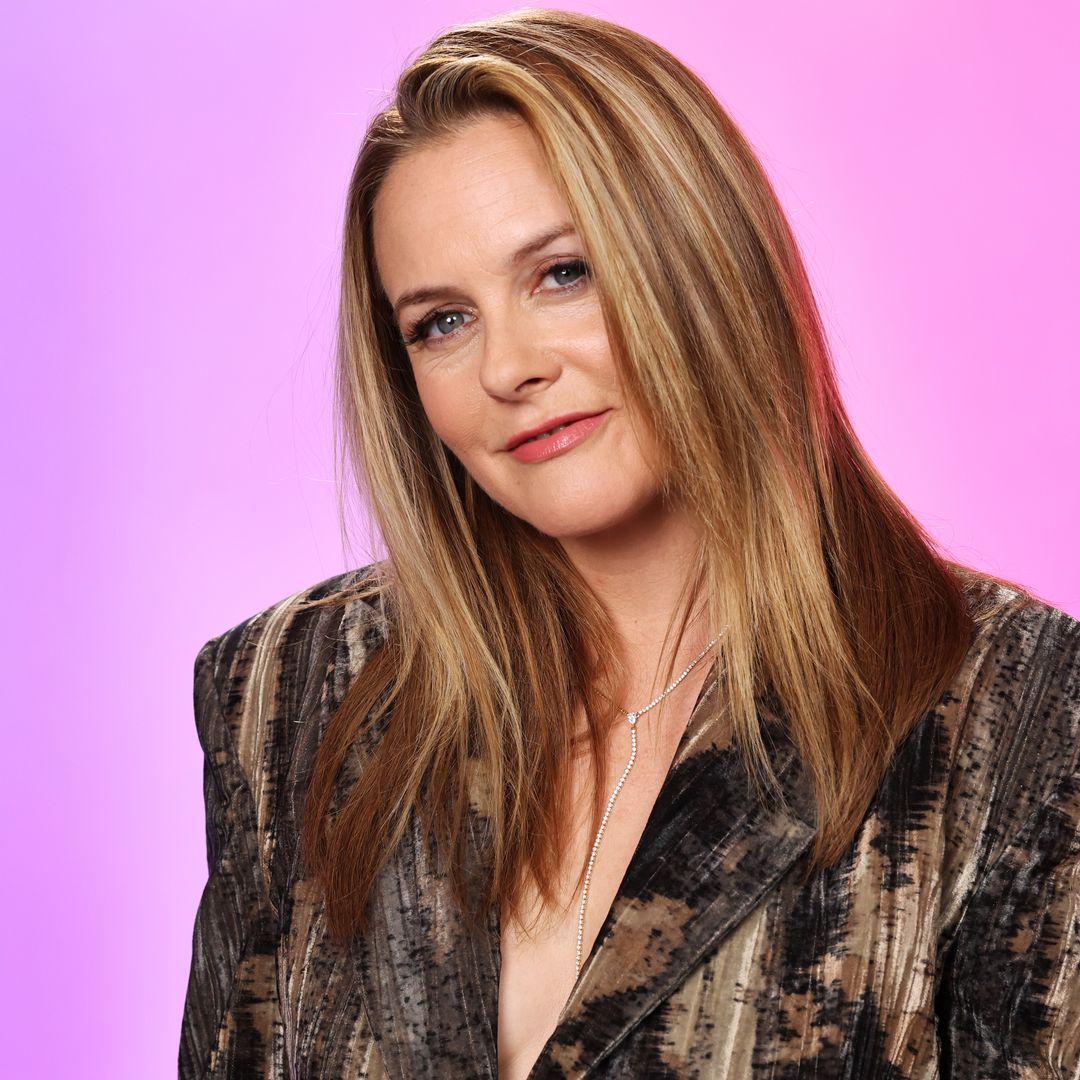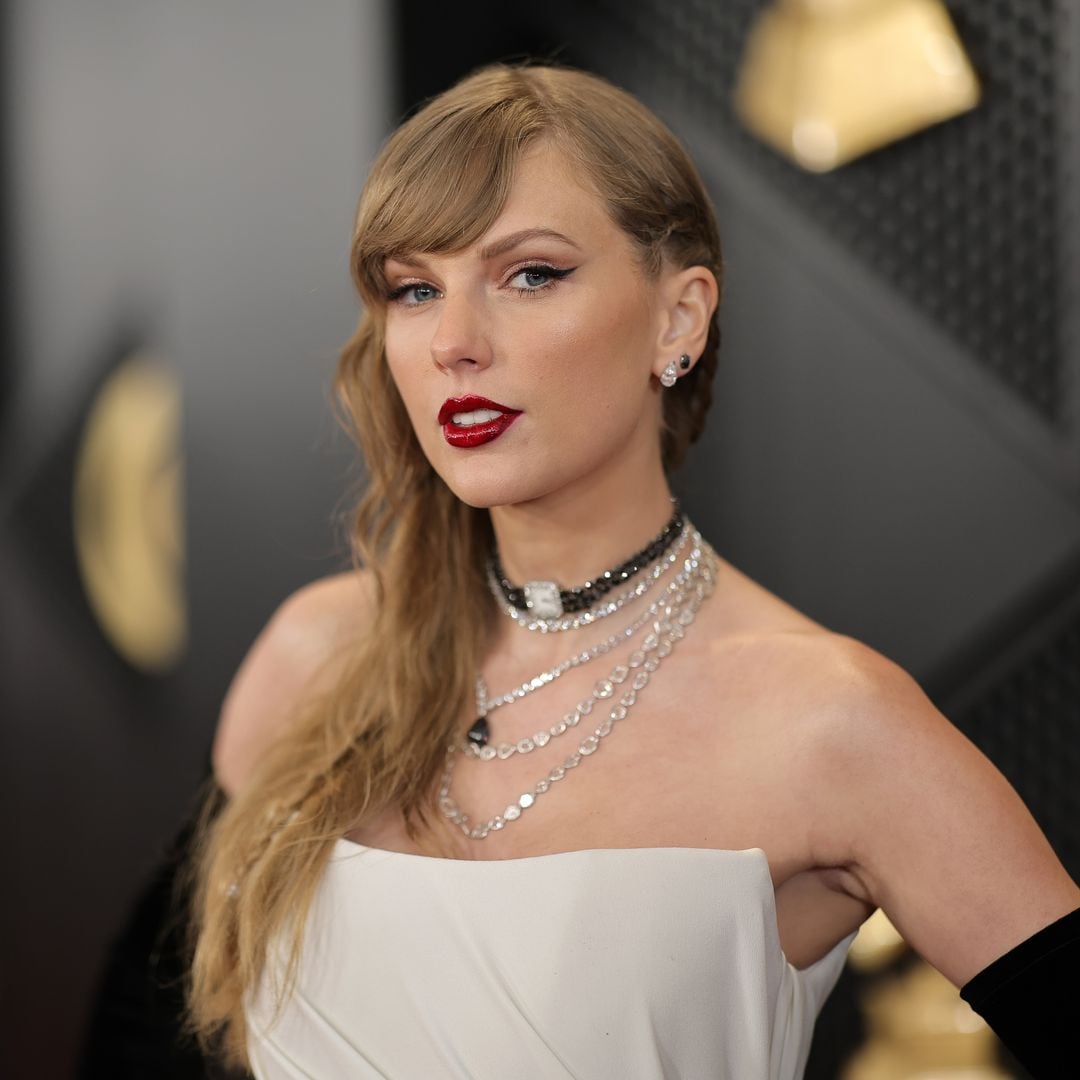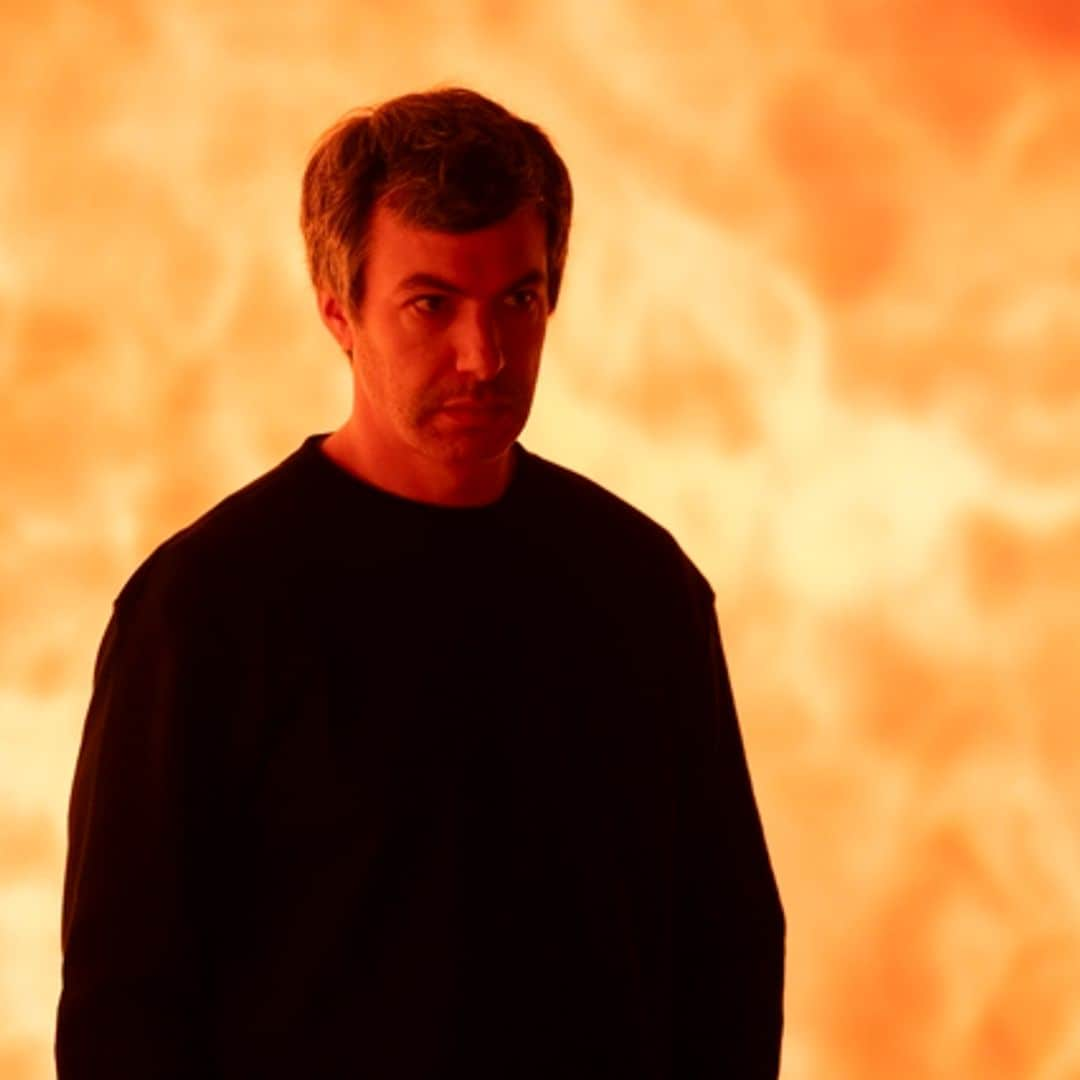Natalie Morales is continuing to make her mark in Hollywood while making her Cuban family proud, and staying true to who she is. In her latest film, ‘No Hard Feelings’, Morales stars alongside Academy Award winner, Jennifer Lawrence. The movie is out in theaters June 23.
Morales, who is also a director, was born in Miami, Florida, on February 15, 1985. After falling in love with acting, she decided to move to Los Angeles with her best friend. She landed her first major role in the 2008 ABC Family series The Middleman, where she gained recognition for her role as “Lucy.”
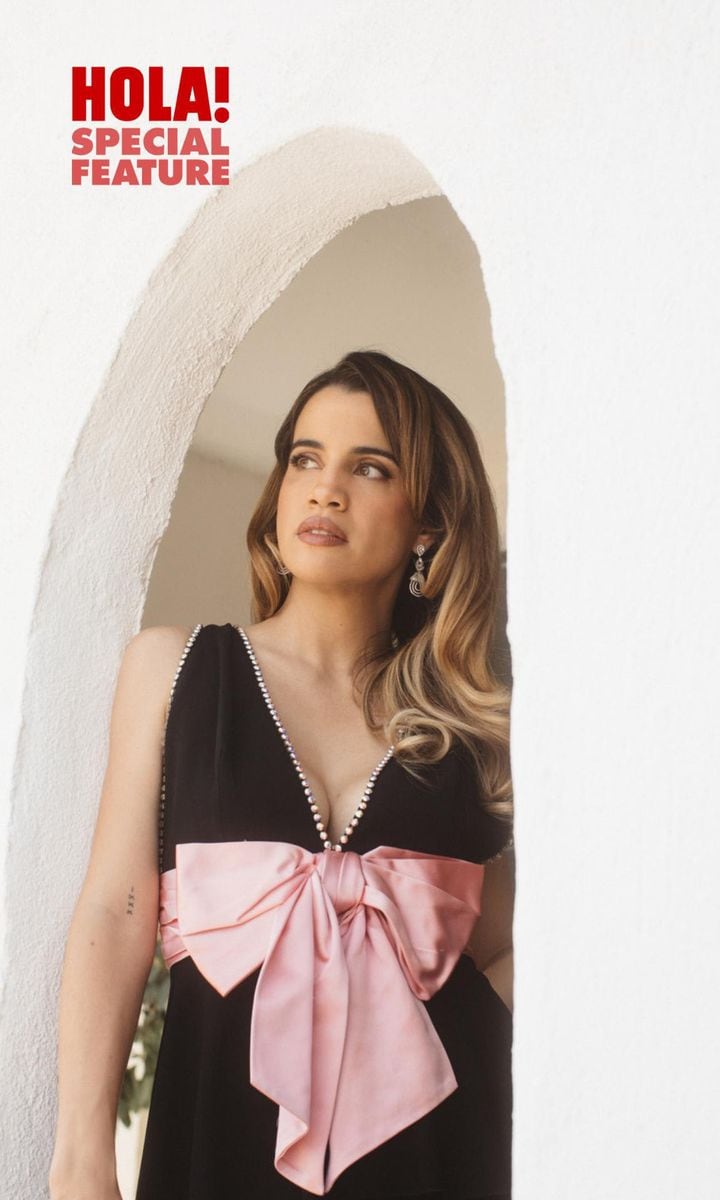 © Catie Laffoon
© Catie LaffoonHOLA! USA had the opportunity to talk to Morales ahead of the release of No Hard Feelings, where she opened up about representation, her love of acting, directing, that time she sold mattresses on Craigslist, and more.
“I would say, this is not an original piece of advice, but don’t take directions from anybody who hasn’t been where you’re going. That doesn’t make any sense in life.And it doesn’t make any sense in a career either.” - Natalie Morales
I play Sarah, who is Jennifer Lawrence’s best friend in the movie. Her character’s name is Maddie. And we’re lifelong best friends who live in the Montauk area of New York, the Hamptons, where everybody goes for the summers. And we’re the year-round residents
It was great. Gene Stupnitsky, who I’ve known for a long time, is the writer/director, and he and I did a show called “Trophy Wife” together a long time ago. He was one of the executive producers of that. So I’ve known him for a long time, and it was really great to see him directing. He was like a writing producer on that show, so it was great to see. So I had an old friend on that, and everyone was really sweet. The crew was awesome. It was so fun to work on it with everybody.
It was great. We had some real heart-to-hearts about stuff, and it was really nice. She has a young baby, and sometimes he came to set, and it was very cute.
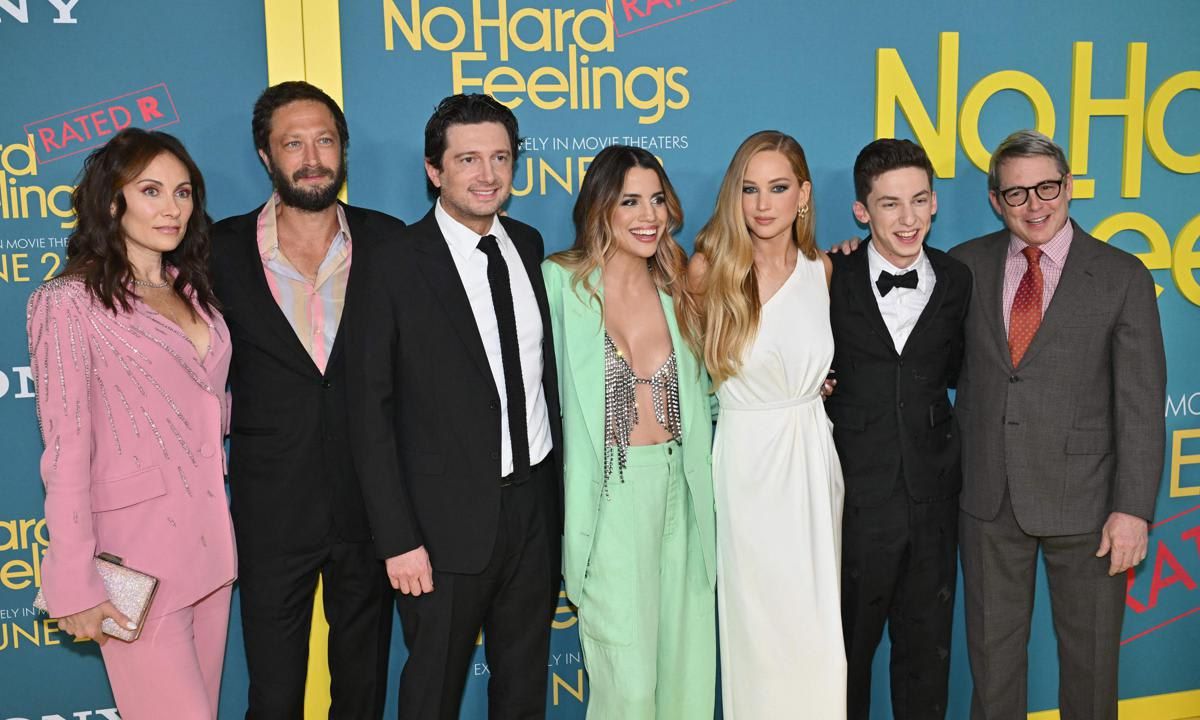 © GettyImages
© GettyImagesThat’s a great question! ‘Cause I think it’s a very valuable experience. Every director should take an acting class at least, just so that they know what they’re asking people to do. It helps me in a lot of ways. I think spending time on sets as an actor, -at least, if you’re paying a little bit of attention,- you’re there a lot. And you get to see a bit of what everybody does for their job. You get to really work with the camera department, with the lighting department, with the grips, costumes, props, and sound. You get to work with almost everybody as an actor.
As a director, you work with everybody, but you have this different perspective on it all. Not only on what an actor does but on what all the other members of the crew do. And also, as an actor, I get to work with a lot of different directors, and I got to see, especially on television, different directors and how they work. And I’m honestly more inspired by the bad ones than I worked with than by the good ones because I’m like, “If that guy can do it, I can do it. And that guy, that guy’s terrible, and he keeps working. I could do this with my eyes closed if that guy’s doing it.” So it was more inspiring to me in that way.
If you’re just a director, you don’t get to see how any other directors work, really. It’s a very solitary job. So it was very beneficial to be able to live in both worlds. It’s helped me as an actor too, because the auditioning process is so intimidating. After all, you feel there’s such a huge chance of rejection. It’s like a 99% chance of rejection. That’s literally what it is. But you, as a director, when you are on the other side, and you’re casting people, you want the next person to walk in and be the person, you want them to be the person that you’re going to cast. So having that perspective as an actor going like, “Oh, these people want me to succeed.” It sort of changes things. So it’s been good for both of my jobs.
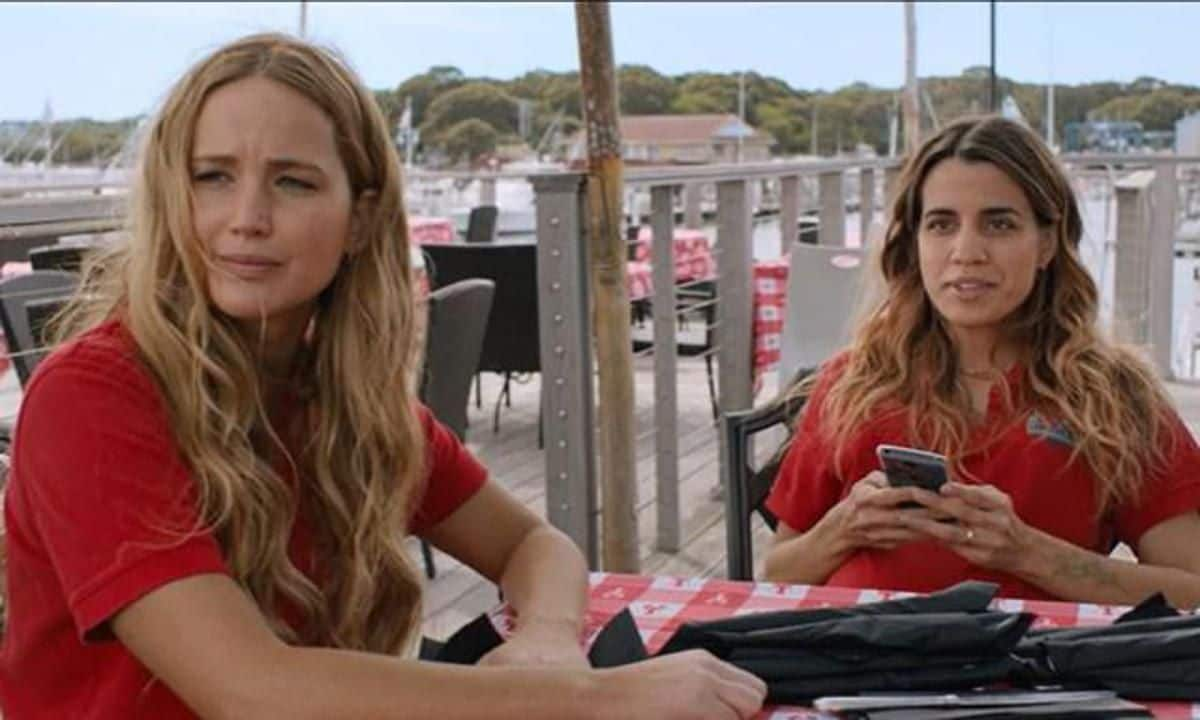 © Sony Pictures
© Sony PicturesThe only way to survive with your brain and mental health mostly intact in the business that is built around rejection is by really trying to forget about it, not taking it personally, and keep moving on. But more importantly, I think for me, it was important to write and direct and to do my own stuff because then I had some agency over what I was doing. I think as an actor, it can feel very much like you’re always waiting for someone to give you the opportunity to do your art, which is very hard as an artist to just always be asking for permission to do your art; it gets frustrating. I think especially as a Latina like you were saying. It’s very hard to know that you are doing great and your friends are doing great, and you’re not getting cast in something simply because the people in charge aren’t seeing what you see. Because I think until we get Latino people in executive positions at studios and in studio head positions at studios, it’s going to remain not great because the people making those decisions need to understand that their perspective isn’t the only one. And it’s hard for people to understand that unless you have other people’s perspectives making those decisions. I think what’s funny in our communities is not necessarily funny in the way that people have been writing and casting Latino people for years. I think all of us in the Latino spectrum have been like, “No, we don’t speak Spanglish that way. I don’t say ‘abuela’ every two minutes. I don’t randomly start dancing salsa.” That’s not how Latino people work. And it’s because the people making these decisions are putting that on us. And then like you said, saying, “You’re not Latina enough, you’re not this enough.” When that’s not true, that’s not even a thing.
It’s been weird for me in that case because I don’t really fit the stereotypes that Latinas have been in this industry for so long, which is one of three archetypal things, like a maid, a sexy seductress, or a tough Nuyorican girl. And the Nuyorican girl can be from LA, it can be from Texas, can be whatever. But it’s always that those three, some amalgamation of those three. I don’t really fit any of those, and I feel really almost weird doing those. I can act as a Southern lady more easily than I can act as a tough Nuyorican girl because I called my own bullshit on that. So it’s interesting to shove your way into this business in a way that they don’t see you, which is what I’ve been trying to do. I’ve just been trying to be like, ‘Hi, we’re all different. It’s not the stereotypes that you have been putting on TV and film for this long amount of time.’
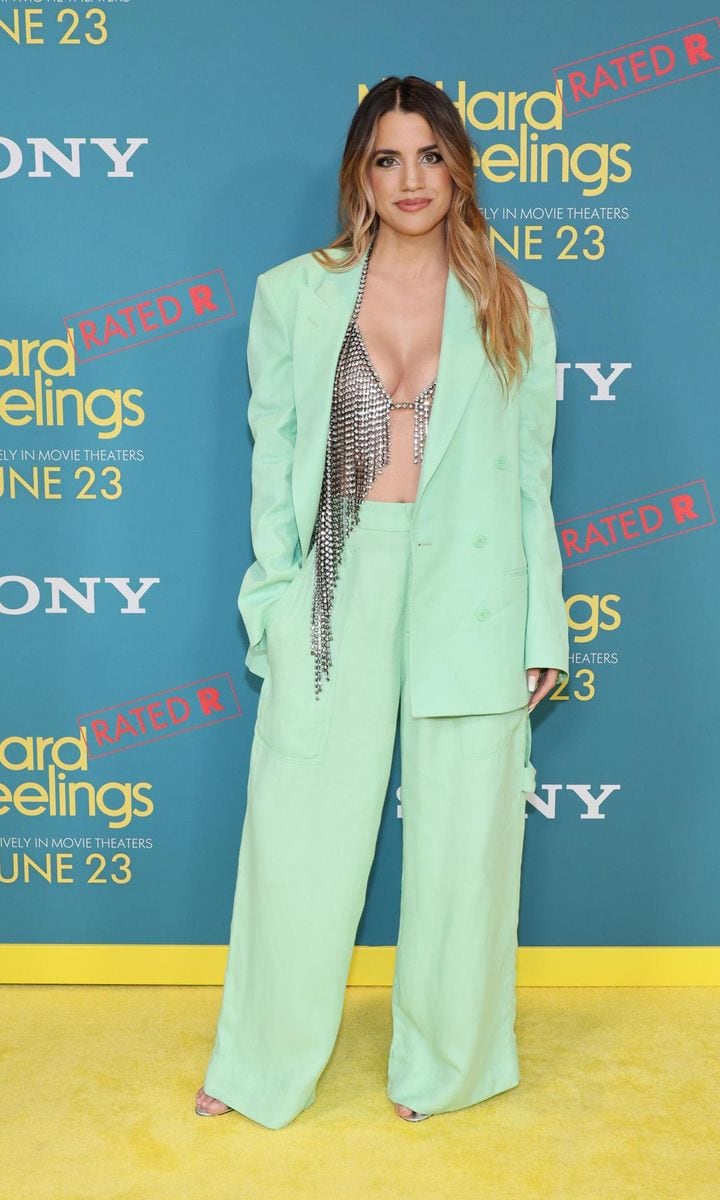 © GettyImages
© GettyImages“...In the United States, we are a part of the global majority, but in the United States, we’re considered a minority. I grew up in Miami. My family are all Cuban refugees. And in Miami, that’s the norm.” - Morales
I always talk about how, at least in the United States, we are a part of the global majority, but in the United States, we’re considered a minority. I grew up in Miami. My family are all Cuban refugees. And in Miami, that’s the norm. I’m not a minority there. In fact, the majority of people I would say that I grew up with were Latino, but not even only Latino, Cuban. So everyone around me was the same as me. I did not grow up feeling like a minority. Therefore, I have the confidence of a mediocre white man now, because I did not grow up feeling less than. It was only when I got to LA that I started to notice that people were looking at me for my skin color and what I looked like on the outside and not for who I was. That had never happened to me before. It was something that was all around me. And then I came out here, and people were like, “Are you Mexican? But you’re not Mexican enough, but you’re not this enough.” And it was so weird to have it be questioned. And also it wasn’t ever something that I thought about. I think that constantly being called a minority and constantly being otherized makes you think about things like being Latina, or queer, or whatever, more than you would, you’re just living your life as you. And then somebody’s like, “But wait, aren’t you different?” And you’re like, “I guess, yeah, I guess I’m different. Sure.”
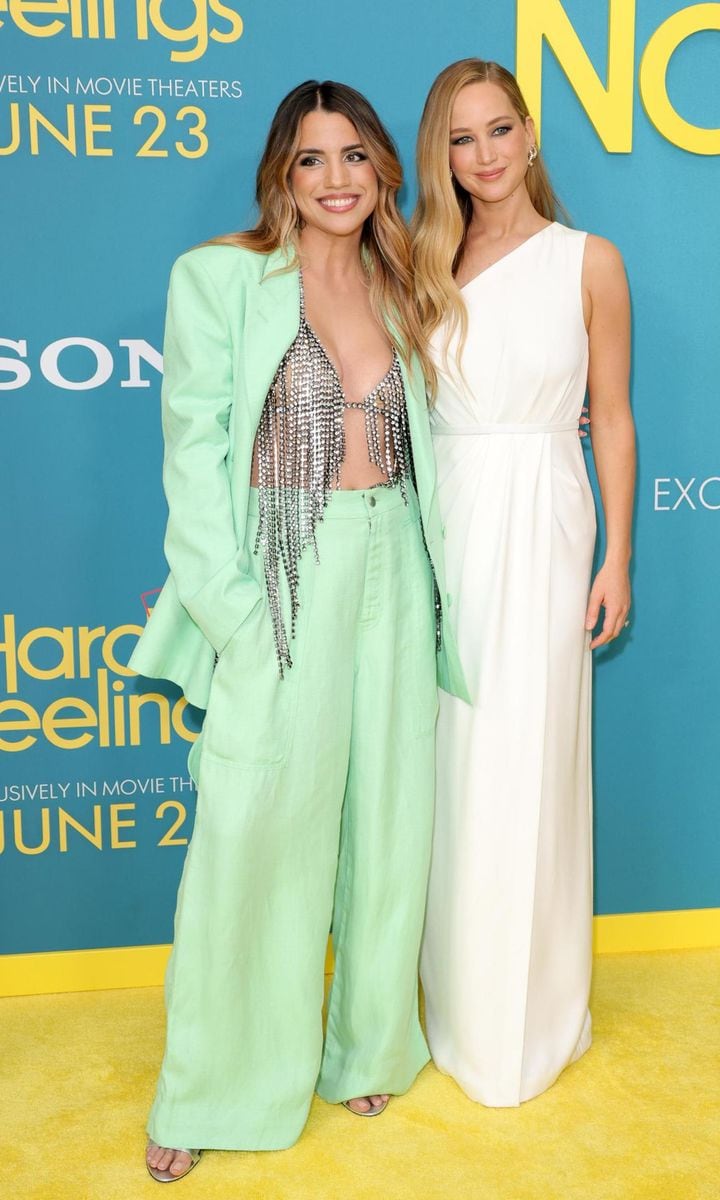 © GettyImages
© GettyImagesDefinitely. I think within Latino communities,- and I guess any community where religion is strong, ‘Cause I think Catholicism and Christianity are very big in the Latino community - Queer and LGBTQ+ things are still difficult. I think that’s, to be honest, where it has meant the most to me because I think that it’s not only being able to openly live this way, being able to openly live this way as a Latina and play parts on TV, or in movies that people see and go, “Oh, that’s someone who’s fine. She’s doing great, she’s healthy, she’s not going to hell, and she seems like a nice person.” You know what I mean? Just to have that, I think it’s so easy for people to demonize something that they don’t know. And I think the opportunity that I get by being on television and being in movies is that you get to know me, or at least a version of me. And I’m not as scary as you might have thought. And just the general expression of what a queer person might look like to somebody who’s afraid of that. I think I take that responsibility very seriously, and it’s very important to me. I think that specifically within my community, it is what means the most to me. I’m a very private person otherwise. And I really didn’t ever think I had to come out publicly until I realized that it was important to some people. It would’ve been important to me as a child had I seen somebody from my background that I could point to my family and be like, “But they’re fine, they’re doing great.”
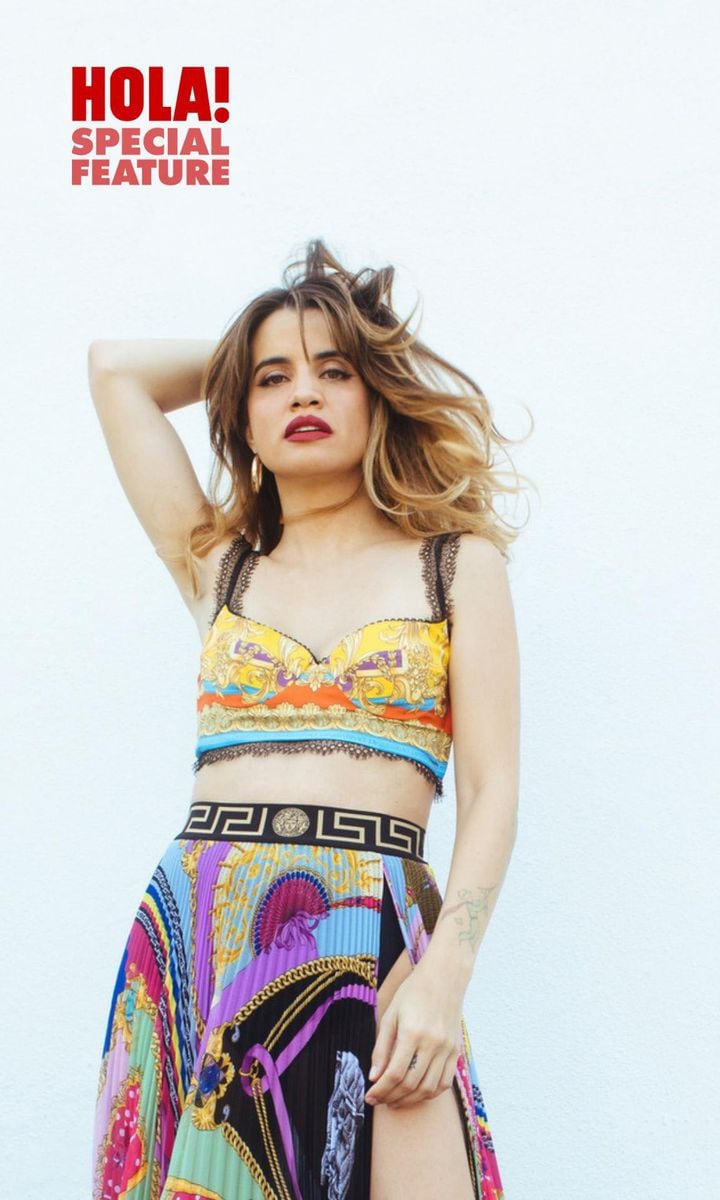 © Catie Laffoon
© Catie Laffoon“The women in my family are hilarious, and they have no idea that they are. They’re so funny. But I think also any Cuban person is naturally funny. I don’t know what it is about us. Maybe all of the oppression, but I genuinely think even the shyest Cuban person will tell you a story in the funniest way you’ve ever heard.” - Morales.
Yes. Yes. The women in my family are hilarious, and they have no idea that they are. They’re so funny. But I think also any Cuban person is naturally funny. I don’t know what it is about us. Maybe all of the oppression, but I genuinely think even the shyest Cuban person will tell you a story in the funniest way you’ve ever heard. We exaggerate in the funniest ways. I honestly think in studying it, I think Jewish humor and Cuban humor are very, very similar. We both have mothers that make us feel very guilty about things, and I think that might have something to do with it. But yeah, I think it’s just the culture that I come from has that built in. But also independently, for myself, I was the unpopular dork, and my only way to have anybody talk to me was to be funny when I was a kid. I was definitely more of a class clown person. And hey, look, it paid off.
They’re so supportive, and they watch everything I do, even when they don’t know how to watch it. And I have family members that don’t speak English. So sometimes when I get to do things like Language Lessons that is in Spanish, or mostly in Spanish, half in Spanish. They’re very excited about that. My grandfather, who is no longer with us, was such a big fan of movies and, I don’t know if he was into the Farándula, the show business was something that they liked. And I remember watching “El Gordo y la Flaca” and all these things at home with my grandparents, and they were always into it. And my grandmother’s not alive anymore either, but she got to see some of it. She got to see some of me being in this business, and it was very exciting. So I think about them a lot, and I think about the sacrifices that they made to get their family out of harm’s way and where would I be if they hadn’t done that? Yeah, they’re so supportive, and I’m very lucky to have the family that I have.
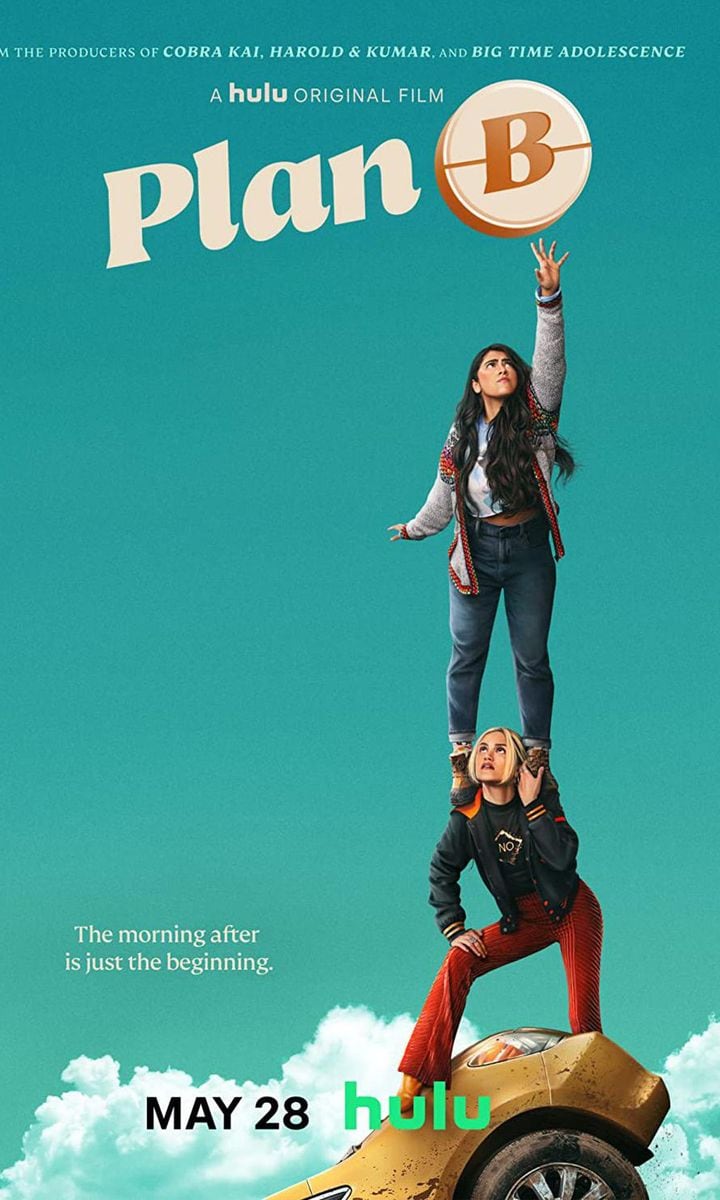 © Hulu
© HuluYes, I do. I went to this parochial school in Miami, and they didn’t have any arts programs or any drama programs, although, I did manage to get into any kind of church plays that I could because I was always like, “Yeah, I’ll play Mary. Great.” But I didn’t think of it. I never... Again, talking about representation, I never thought of it as something I could do. It didn’t make any sense, I’d never seen anybody like myself. It wasn’t even on my radar as a possibility. It had never occurred to me. And then I went to a different high school, and I didn’t know anybody there. I signed up for summer school just so I could meet some people. And I was like, “Okay, I’ll take two classes in things that I know, I’ll take a guitar class. And I’ve always wanted to learn photography, so I’ll take the photography class.” And the woman was like, “Someone just took the last spot in photography, why don’t you try drama?” And I was like, “Okay.” And then I did it, and it was like everything opened up for me. It was the first time that people were laughing at me because I wanted them to, and because I was intentional. And then I was like, “Oh, I could control, I could make this happen.” And I was terrible. I was a really bad actor. I did not know what I was doing. And then at some point in high school, I was like, “Oh, this is what I want to do.” Then I convinced my best friend to move to LA with me, and I was like, “Listen, we’ll move out there one month, we’ll get an agent. The second month we’ll be on TV, and it’ll be great.” So I had so much bravado, and I was so convinced that it would happen that way. It did not. But we’re both still here. We’re both still working together.
No, I wish that I had, I wrote so many letters to Mel Brooks that I don’t think he got them.
I know. Then I ended up being in “History of the World” last year, which is very exciting for me. But no, I never had a mentor out here. I kind of just did it on my own. I had help obviously from friends and my manager, who’s been my manager for a very long time since the first year I moved out here. But yeah, no mentors.
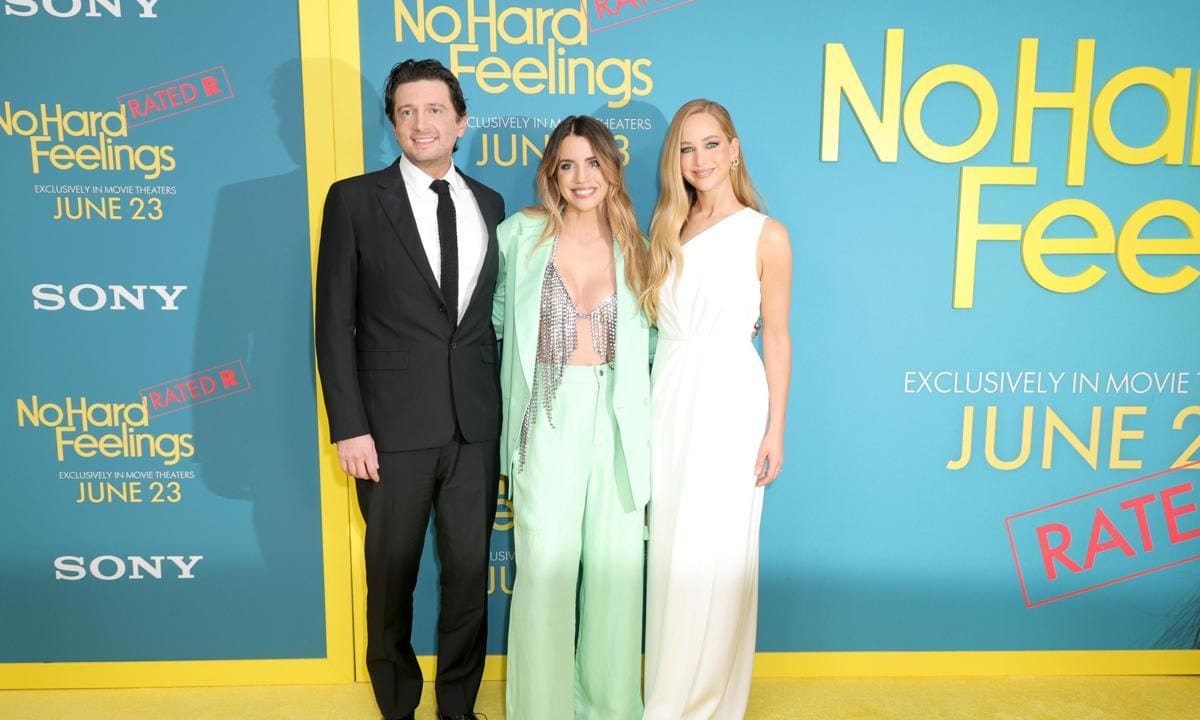 © GettyImages
© GettyImagesOh yeah. I mean, I was a bartender and a waiter for a long time. I had all these weird jobs. I was a photographer for a while, taking headshots. I sold mattresses on Craigslist. I did a lot of weird jobs to get by.
It’s a long story. I’m not sure if it was a scam. I don’t think it was. They were real mattresses, but I do think they were refurbished. And I apologize to anybody I sold a mattress to.
I would say, this is not an original piece of advice, but don’t take directions from anybody who hasn’t been where you’re going. That doesn’t make any sense in life. And it doesn’t make any sense in a career either. I think you can hear people’s advice, but I think that around women in general, but specifically with Latinas, our families can be so protective of us that it’s coming from their own fear a lot of times. I think that there’s an inherent fear with being an immigrant or a refugee, that you’re going to make too many waves, and that you should just stay small, work hard, and keep going. There’s nothing wrong with that, but I think if you want to expand, you should expand, listen to your gut, and try and seek out people who are in places that you want to be.
,type=downsize)
